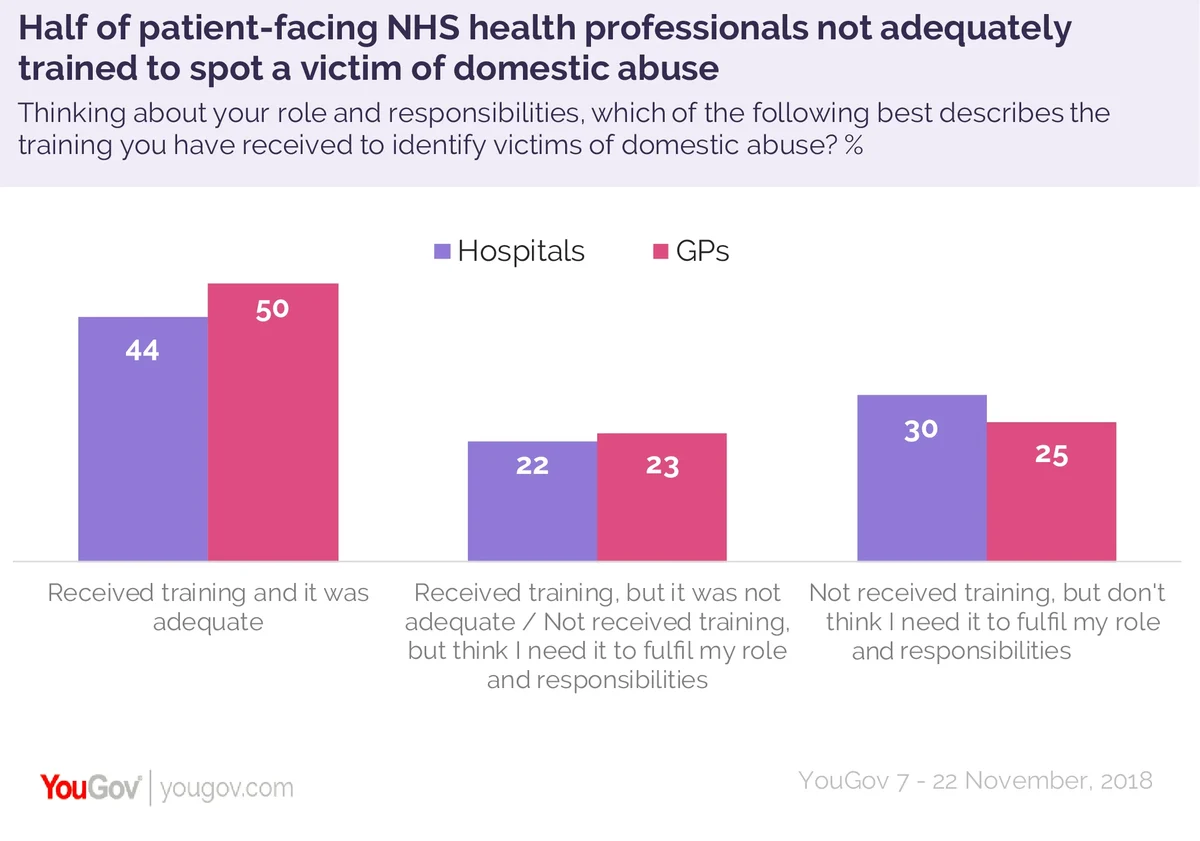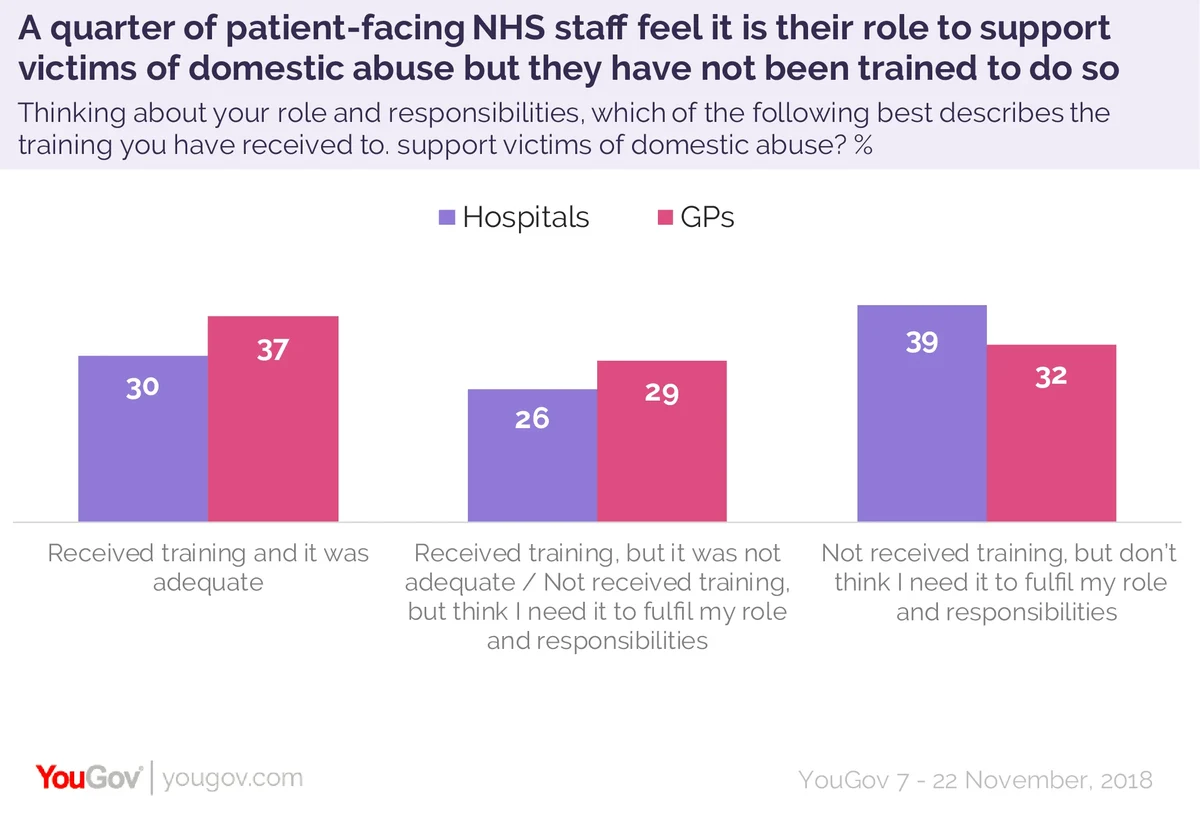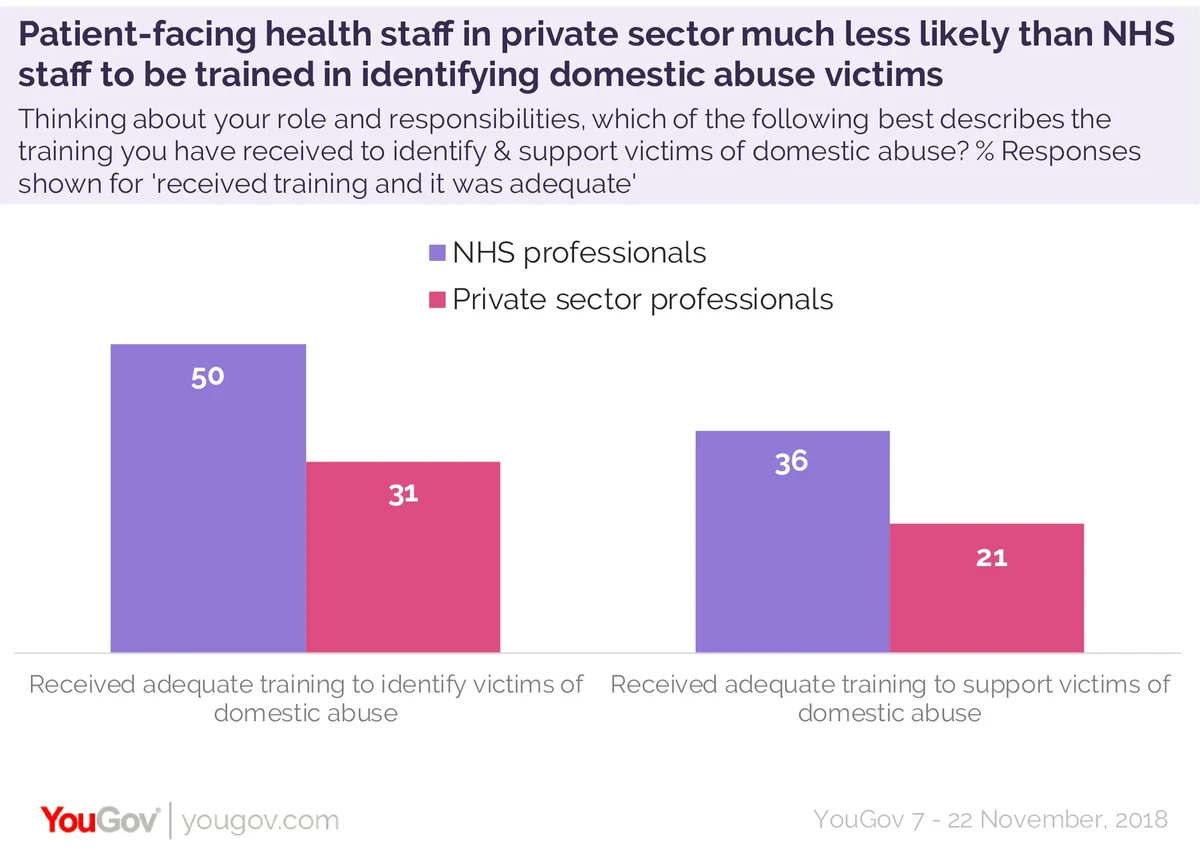Domestic abuse victims are highly likely to interact with healthcare staff over the course of their abuse. But new YouGov research shows a significant proportion of them do not feel adequately trained to identify or support victims.
A new YouGov Healthcare Professionals survey on the extent to which healthcare professionals feel able to identify and support victims of domestic abuse reveals that a significant proportion feel unequipped to do so – and many do not see it as part of their job.
YouGov’s survey consulted healthcare professionals working in every area of healthcare services, from hospitals (44%) to GP surgeries (12%), community services (11%), care homes (7%) and mental health trusts (6%), to find out what proportion feel they have been adequately trained to identify and/or support a victim of domestic abuse, and how many see it as their responsibility to do so.
Half of healthcare professionals in GP surgeries and NHS hospitals do not feel adequately trained to identify a domestic abuse victim
Research by the organisation SafeLives shows domestic abuse victims interact with state institutions an average of five times over the course of three years before finally receiving adequate support from a specialist case worker, known as an Independent Domestic Violence Advisor (IDVA).
Just 7% of referrals to IDVAs are made through health services. Yet 72% of victims working with an IDVA say they went to A&E or a community service because of their abuse in the year prior to their referral; indicating that opportunities for early identification are being missed.
Despite this, YouGov's research shows a considerable proportion of patient-facing staff do not see it as their role to identify a victim of domestic abuse. One in four (26%) patient-facing staff in the NHS said they have not received training to identify a potential victim, but do not see it as necessary for their role. This opinion is slightly more prevalent among hospital staff (30%) than those working in GP surgeries (24%).

One in nine patient-facing NHS staff say they have received training, but it was inadequate (11%). The same proportion have received no training at all (11%), but see it as necessary to fulfil their responsibilities.
Only half (50%) have received what they perceived as adequate training.
One in three GP staff and one in four hospital staff have not been trained to support victims of domestic abuse but see it as their job to do so
Among NHS staff in patient-facing roles, just over one in three (36%) have received what they see as adequate training for supporting victims – almost two thirds less than the proportion who feel able to identify a victim.
GP staff are slightly more likely than hospital staff to feel they have been adequately trained in supporting victims (40% vs 30%).

Still, they are also slightly more likely to say they received either inadequate training, or no training at all despite seeing it as part of their role (28% of professionals in GPs vs 26% in hospitals).
The proportion of patient-facing NHS professionals who do not feel it is their responsibility to support victims of domestic abuse is 34% - eight percentage points above the proportion who say they do not need to know how to identify a potential victim (26%).
Private sector professionals considerably less likely than public sector counterparts to have received training to identify and support victims of domestic abuse
In the private sector, figures are even lower across the board on every measure - from those who feel able to identify and support victims, to those who feel responsible for doing so.
Just one in three (31%) private sector professionals say they have received adequate training to identify victims of abuse, compared to half (50%) of NHS professionals.

One in five (19%) say they have received what they see inadequate training, or not received training but feel they need it to fulfil their role and responsibilities.
Half (46%) have not received training but do not think they need it to fulfil their role and responsibilities.
Even fewer private sector professionals feel they are trained to support a victim of domestic abuse, assuming the victim has been identified. Just one in five (21%) say they have received adequate training to do so, compared to one in three (36%) NHS professionals.
One in four of (24%) have either received training they thought was inadequate, or none at all
Half (52%) have not received training but do not think they need it. Private sector professionals are 66% more likely than public sector professionals to think they do not need training.
Photo: Getty
See the full results here. This research was conducted as part of YouGov's Healthcare Professionals Survey.







